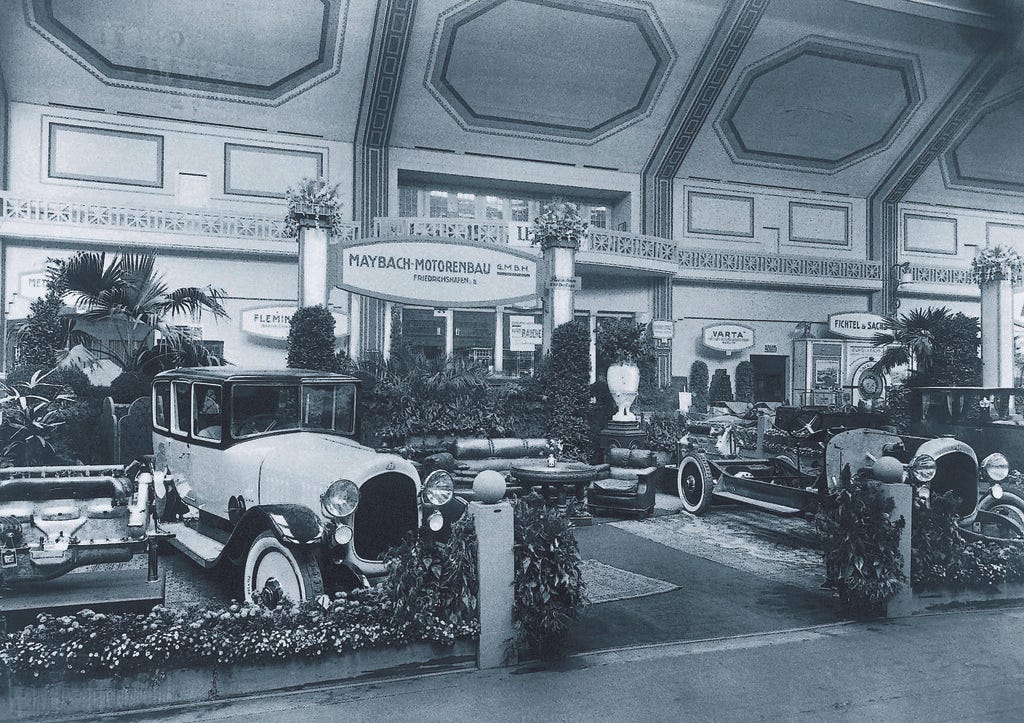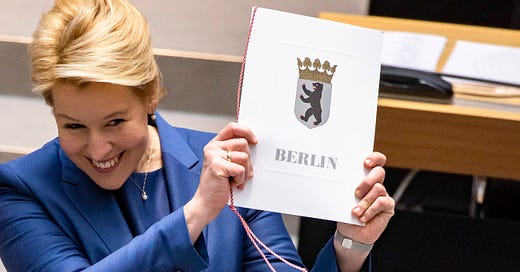Dear 20 Percent,
We might as well just dive right in:
Predictions are rife that, thanks to Omicron, Germany will see an unprecedented spike in infections at the start of 2022. The government is in full-on emergency mode. Chancellor Olaf Scholz’s (SPD) 19-member corona commission, made up of virologists, doctors, psychologists and ethicists, put out a worrying statement on Sunday. For me, this was the scariest part:
Should the spread of the Omicron variant in Germany continue in this way, a relevant part of the population would be simultaneously ill and/or in quarantine. This would put extreme strain on the health system and the entire critical infrastructure of our country. Further collateral effects are to be expected, especially in the working population, due to the necessary care of children or people in need of care. A massive expansion of the booster campaign can slow down the spread and reduce the impact, but not prevent it. According to the mathematical models, an overload of the healthcare system and the faltering of critical infrastructure can only be prevented by a major reduction of contact.
Potentially facing such a scenario - in which the breakdown of essential services is a real possibility - German leaders have felt compelled to act. Scholz is meeting with the 16 state premiers to fine-tune a raft of new measures today. As always, the draft resolution has been shared with the press.
Here are the key points of what is being called “lockdown light”:
Nightclubs to close before Christmas.
Indoor events can only take place at 30 percent capacity; outdoor events at 50 percent capacity. The rule also applies to 2G (vaxxed or recovered) and 2G-plus (recovered or recovered + negative test) events.
Restaurants, bars, cinemas, theaters and retail will remain open (2G, except for essential shops like supermarkets, pharmacies, drugstores).
From 28 December, private gatherings are to be limited to 10 people (not including kids aged 14 and younger) for vaccinated or recovered people. In other words, no big New Year’s parties.
If at least one unvaccinated or non-recovered person is present, gatherings must be limited to one household plus no more than two people from another household.
German states with high incidence rates will be authorised to cancel events and ban audiences at professional sport fixtures.
The government is calling upon everyone to take caution over the holidays: minimise social contact, open windows regularly (Lüften!), wear masks indoors, get tested before meeting friends and relatives.
People are being asked to avoid setting off New Year's Eve fireworks since potential injuries could place hospitals under additional strain. The sale of fireworks has already been banned in Berlin, but people will have hoarded them from previous years or carted them across the border from Poland.
Authorities say the best protection against Omicron is to get a booster shot - vaccination centres will remain open over Christmas and New Year's Eve (December 25, 26 and January 1 are national holidays).
Nothing as harsh as the lockdowns we saw earlier in the pandemic or what the Netherlands has implemented this week. Let’s hope we can get through this without that. The thousands of small businesses and indie venues that make Berlin what it is were hammered by the haphazard shutdowns and who knows how much more they can take.
My heart goes out to those affected by Germany’s new (but already pointless because Omicron is everywhere) UK travel restrictions, under which only German citizens or residents can enter the country from the UK. Here’s all the info in English.
Come what may, Andrew and I will be keeping track of this fluid situation over the holidays, with updates every Tuesday and Friday. Next week, look out for our year-in-review and 2022 preview editions!
More news below.
Hang in there!
Maurice
The Berlin corona stats for Tuesday, December 21
Fully vaccinated: 70.7% (on Friday, Berlin reported 71.4%, but this has now been corrected for unknown reasons)
New cases in one day: +2,941 (2,391 Friday)
Total deaths: 3,969 (+25 over Friday)
🔴 7-day Covid-19 incidence (cases per 100,000): 325.8 (296.7 Friday)
🟡 7-day hospitalization incidence (also per 100,000): 5.2 (4.7 Friday)
🔴 Covid-19 ICU patient occupancy: 22% (22.4% Friday)
Source: Berlin’s corona information page
We have a new city government
The Berlin parliament (remember, we’re a state and not just a city), Tuesday confirmed the new administration or Senat as it’s confusingly called, after Die Linke’s members approved the coalition agreement late last week. While the SPD-Grünen-Linke coalition is the same as the one that ran Berlin under Michael Müller, most of the top posts have gone to new people. Governing Mayor Franziska Giffey (SPD) will lead Berlin’s first female-majority cabinet. Seven cabinet jobs have gone to women, four to men. Giffey will be the second ever woman in the mayor’s seat (Louise Schröder held the office in a placeholder capacity from 1947-1948) and, at 43, the second youngest. We’ll keep you on top of all their feats and mishaps.
Benelux night train coming next summer
The launch of a privately run overnight rail service linking up the Netherlands, Belgium, Germany and the Czech Republic has been bumped from April to summer 2022, thanks to the bureaucracy involved in getting slots from the various national track operators. The joint venture between start-up European Sleeper and the Czech RegioJet will see three trains passing through Berlin on the Brussels-Prague route per week. Stops include Antwerp, Rotterdam and Dresden - and Amsterdam. The operator says ticket sales will begin in the spring and are promising prices that compare with discount air fares.
Making German taxes easier
Germany’s new finance minister Christian Lindner (FDP) says he wants to simplfy the process of filing your taxes. Proposed changes include automatically pre-filling forms with information already known to the Finanzamt. If you think about how many hours per year you spend filling in forms with information everyone already has, this makes sense. Expect Germany’s hypervigilant data protection warriors to put up a fight though. Lindner also wants the temporary “home office” deduction (worth up to €600 per year) to remain in place once the pandemic is over.
New charging stations
Berlin says it intends to install 2,000 public electric car charging stations by 2030. Right now the city has about 1,800. The plan seems rather unambitious to me when you keep in mind that the new national government wants to get 15 million electric cars on German roads by 2030. Perhaps it’s time to scrap the extension of the A100 inner city autobahn and divert some funds? Just saying.
Factoid

100 years ago, Berlin reported that 60,876 automobiles were registered in the city. Today, city residents own nearly 1.3 million.
Where to eat … on X-mas Eve
Not celebrating on Heiligabend but still feel like getting out? Most restaurants are closed, but not all. Exberliner has you covered with a nice little guide to eating out over the holidays.
Please take a moment to visit our sponsor 👇
Tired of increasing rents?
The rise of Berlin as a startup capital has brought with it several externalities, one of them being a scarcity of apartments for both renting and living. With no end in sight, low interest rates make buying in Germany's capital still relatively affordable compared to other capitals around Europe. But interest rates may not stay low forever: use Hypofriend to check whether buying makes sense. Hypofriend is an online home buying platform with dedicated English speaking mortgage brokers to help you find and finance your dream home.





